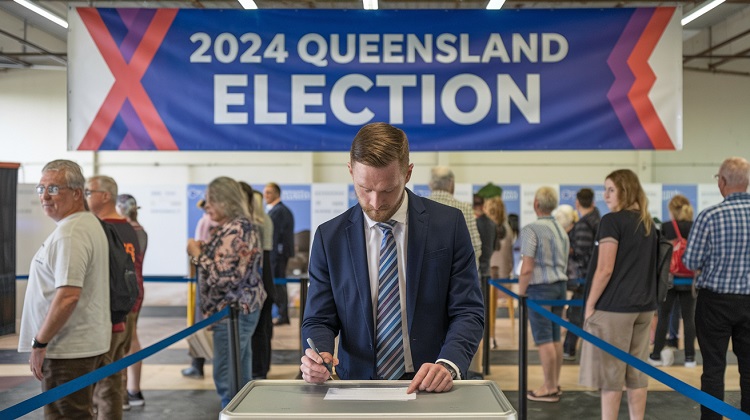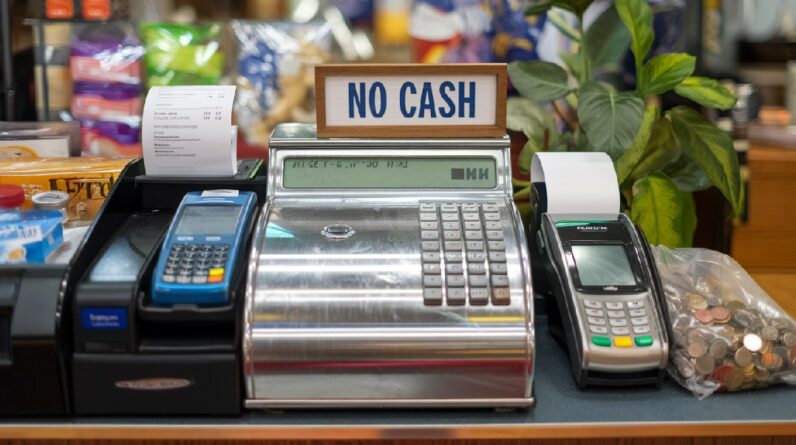Following Woolworths’ decision to not sell Australia Day merchandise, Opposition Leader Peter Dutton has called on the public to boycott the supermarket.
Dutton Sparks Outrage With Call to Boycott Woolworths
The recent call by opposition leader Peter Dutton to boycott Woolworths has ignited a firestorm of outrage and debate. Dutton’s accusation that the supermarket chain is pushing ‘woke agendas’ by ceasing the sale of Australia Day-themed merchandise has divided politicians and the public alike.
While some have rallied behind Dutton’s call, others argue that it is a distraction from more pressing issues. As the controversy unfolds, it raises questions about the power of political influence, the role of businesses in shaping public discourse, and the ongoing scrutiny faced by supermarket giants like Woolworths.
Key Takeaways
- Woolworths and Big W have decided to stop selling Australia Day-themed merchandise due to a lack of customer demand.
- Opposition leader Peter Dutton called for a boycott of Woolworths over their decision, accusing them of peddling woke agendas and trying to cancel Australia Day.
- Some politicians, including Pauline Hanson and Coalition backbenchers, supported Dutton’s call for a boycott.
- The controversy highlights the ongoing pressure on supermarket giants to justify their business practices and pricing decisions, leading to a government review of the voluntary code governing grocery stores.
Woolworths’ Decision to Stop Australia Day Merchandise
Woolworths’ recent decision to cease stocking Australia Day merchandise has sparked controversy and debate surrounding the company’s business practices and political stance.
The decision, made by Woolworths and its subsidiary Big W, was based on a lack of customer demand for such merchandise. Woolworths Group stated that there has been a gradual decline in demand for Australia Day-themed goods in recent years.
However, the decision has faced opposition from politicians, including opposition leader Peter Dutton, who called for a boycott of Woolworths. Dutton accused the company of peddling woke agendas and trying to cancel Australia Day.
On the other hand, some politicians and critics argued that the focus on supermarket merchandise instead of more pressing issues is misplaced. The controversy highlights the ongoing pressure on supermarket giants to justify their business practices and pricing decisions.
Peter Dutton’s Call for a Woolworths Boycott
Opposition leader Peter Dutton’s recent call for a boycott of a certain supermarket chain has ignited a heated debate surrounding their decision to cease stocking Australia Day merchandise. Dutton accused Woolworths of pushing ‘woke agendas’ and attempting to cancel Australia Day. He urged people to take their business elsewhere, suggesting IGA, Coles, or Aldi as alternatives.
Some politicians, including Pauline Hanson and Coalition backbenchers, supported Dutton’s call for a boycott. However, Agriculture Minister Murray Watt criticized Dutton for focusing on a culture war instead of more pressing issues. Shadow Treasurer Angus Taylor suggested that Woolworths should continue stocking the merchandise, even if it didn’t sell well, arguing that it wouldn’t significantly impact their bottom line.
Woolworths Group responded by emphasizing their commitment to offering food and produce for all occasions. The controversy highlights the ongoing pressure on supermarket giants to justify their business practices and pricing decisions.
Politicians’ Support for the Boycott
Several politicians, including Pauline Hanson and Coalition backbenchers, have expressed their support for the boycott of a certain supermarket chain following opposition leader Peter Dutton’s call. The support from these politicians reflects a growing sentiment among certain segments of the political spectrum that Woolworths’ decision to stop stocking Australia Day merchandise is a step too far. Critics argue that the decision is an example of woke culture and an attempt to cancel Australia Day.
By endorsing the boycott, these politicians are signaling their agreement with Dutton’s assertion that Woolworths’ political stance goes against the national interest. However, this support has also faced criticism, with some accusing Dutton and his supporters of focusing on trivial issues instead of more pressing matters. The politicians’ support for the boycott highlights the political implications and priorities surrounding the controversy.
Criticism and Responses to the Boycott Call
Critics of Peter Dutton’s boycott call argue that his focus on a supermarket merchandise dispute instead of more pressing issues is misplaced. They argue that there are more important matters that should be occupying the attention of a federal politician, such as the COVID-19 pandemic, the struggling economy, and climate change.
Some politicians, including the agriculture minister, Murray Watt, and the shadow treasurer, Angus Taylor, have criticized Dutton for his focus on a culture war rather than addressing the significant challenges facing the country. Taylor suggested that Woolworths should continue stocking the Australia Day merchandise, even if customer demand is low, emphasizing that it would have minimal impact on the company’s bottom line.
This criticism highlights the ongoing debate around political priorities and the need for leaders to focus on issues that have a more significant impact on the nation.
Woolworths Group’s Response to the Boycott
Woolworths Group has responded to the boycott call by emphasizing their commitment to providing food and produce for all occasions. In light of the controversy surrounding their decision to stop stocking Australia Day merchandise, Woolworths Group has reiterated their focus on offering a wide range of products to meet the diverse needs of their customers.
They have stated that their decision to no longer sell Australia Day-themed goods was based on a decline in customer demand over the years. Woolworths Group remains dedicated to serving their customers and ensuring that they have access to quality food and produce. They have not wavered in their commitment to providing a diverse range of products that cater to different cultural celebrations and events.
Debates on Political Priorities
The controversy surrounding the boycott call has sparked debates on the allocation of political priorities. Critics argue that Peter Dutton’s call for a boycott of Woolworths over their decision to stop stocking Australia Day merchandise is a distraction from more pressing issues. They question whether it is appropriate for a government official to focus on supermarket merchandise instead of addressing important national concerns.
The debate highlights the inconsistency of political stances and the need for politicians to prioritize issues that have a direct impact on the well-being of the nation. While some argue that selling Australia Day merchandise wouldn’t significantly affect Woolworths’ bottom line, others emphasize the importance of holding supermarket giants accountable for their business practices and decisions.
These debates reflect the ongoing scrutiny faced by major retailers and the government’s efforts to ensure fair competition in the grocery industry.
Government Review of Grocery Store Code
The ongoing controversy surrounding the boycott call has prompted a renewed focus on the government’s review of the voluntary code governing grocery stores. The federal government has re-energized the review in an effort to address concerns about business practices and pricing decisions in the grocery industry. The review aims to ensure fair competition and transparency among supermarket giants.
One possibility being considered is making the code mandatory, which would hold grocery stores accountable for their actions. Another option is increasing fines for uncompetitive behavior, which would discourage practices that could harm smaller competitors.
The controversy over Woolworths’ decision to stop stocking Australia Day merchandise adds to the scrutiny faced by supermarket chains. The government’s review reflects its commitment to ensuring a level playing field for all participants in the grocery industry.
Possibility of Mandatory Code or Increased Fines
The ongoing scrutiny faced by supermarket giants has prompted discussions about the possibility of implementing a mandatory code or increasing fines in the grocery industry. The controversy surrounding Woolworths’ decision to stop stocking Australia Day merchandise has added fuel to the debate.
The federal government has responded by re-energizing a review of the voluntary code governing grocery stores, with the aim of addressing concerns about business practices and pricing decisions. One potential outcome of the review is the introduction of a mandatory code, which would require supermarkets to adhere to certain standards and practices.
Additionally, there is also the possibility of increasing fines for uncompetitive behavior, in order to ensure fair competition in the grocery industry. These measures seek to hold supermarket giants accountable and maintain a level playing field for all players in the market.
Impact on Supermarket Giants and Fair Competition
Supermarket giants face significant implications regarding fair competition due to the controversy surrounding Woolworths’ decision to cease stocking Australia Day merchandise. The decision has sparked outrage and calls for a boycott from politicians such as Peter Dutton. This controversy raises questions about the role of supermarkets in promoting certain political agendas and the impact on fair competition in the industry.
While some politicians have supported the boycott, others have criticized it, suggesting that it diverts attention from more pressing issues. The ongoing pressure on supermarket giants to justify their business practices and pricing decisions is further highlighted by this controversy.
Additionally, the federal government’s review of the voluntary code governing grocery stores reflects their efforts to ensure fair competition in the industry, potentially leading to mandatory regulations or increased fines for uncompetitive behavior.
Albion News is a great place to find informative, up-to-date news articles. We provide a wide range of unique articles that offer an interesting perspective on current events from around the world and from various different sources. You can easily search for the topics that matter most to you and explore in-depth pieces that provide insight into the issues and important debates occurring today. Albion News helps you stay informed with carefully researched and credible stories!







